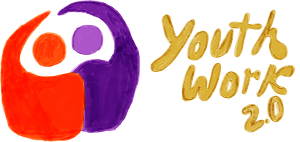Handbook – 21 new non-formal methods
Within the Youth Work 2.0 Project, we have developed 21 new non-formal methods to be used in the activities with young people with and without fewer opportunities jointly to develop social, civic and intercultural competences and to ensure social inclusion at the same time. The non-formal education methods have been created taking into consideration the particularities of each fewer opportunity, so they don’t need to be adapted in order to ensure social inclusion.
Anyone who wants to develop the social, civic or intercultural competences of their beneficiaries, who wants to increase tolerance, to promote non-discrimination and to ensure social inclusion in their activities can use this handbook. Youth supervisors, organisation staff, youth leaders, trainers, coaches, teachers, educators, freelancers and other experts in the youth field, VET field and adult education field can all use this handbook to help them design their activities.
The methods don’t require adaptations because they are specially designed for young people with and without fewer opportunities. Of the 21 new methods, three aim to develop social competences, another three aim to develop civic competences and three more aim to develop intercultural competences. At the same time, these methods are designed to ensure social inclusion and to increase tolerance among young people with and without fewer opportunities. The rest of the methods are designed to promote social inclusion: three methods will foster tolerance and fight against discrimination, three methods will build trust, self-esteem and confidence, three methods are designed to help youngsters experience and understand social exclusion, and three methods are designed to help them manage conflicts.
These 21 new non-formal methods were developed based on literature overview and theory and based on the authors (experts)’s experience. All the methods were previously tested.
The new methods were created using non-formal education principles. The learning process is youth-centred. The methods have been designed to actively, physically and psychologically involve the young people in their own learning process, using their own skills and emotions. The methods follow the experiential learning principles of the Kolb Cycle, by offering opportunities for the young people to experiment, reflect, find solutions, draw conclusions, discuss and apply what they have learned in real life. The methods consider the learning preferences of each existent learning style (active, reflexive, theoretician and pragmatic).
The new methods contain the necessary descriptions and examples of debriefing questions that will directly help the youth worker lead the young people’s learning through all stages of the Kolb Cycle.
You can download the handbook with the new methods from this website on the Results tab or by clicking here.




Leave a Reply
Want to join the discussion?Feel free to contribute!